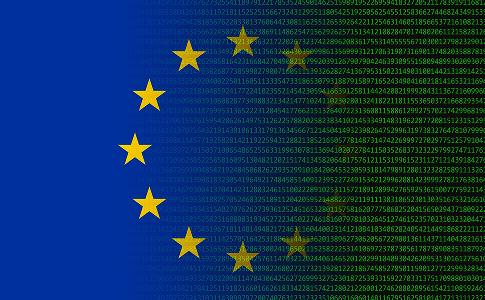In European and French practice, we identify at least four types of events that trigger an investigation, two of which are at the initiative of the company.
In the context of a leniency procedure, the company itself discloses the cartel in which it has participated, thereby granting immunity. If it is the first company to report the infringement, leniency implies a total exemption from penalties. For companies that come forward subsequently, immunity is partial and consists of a reduced fine. Leniency programmes are undoubtedly the most effective tool representing a powerful lever for detecting complex and sophisticated cartels1 and for opening an investigation as a result.
The incentive to “repent” is the cornerstone of this mechanism. It relies both on the attractiveness of the fine exemption and on the vulnerability of these illicit alliances. Indeed, the functioning of the cartel presupposes that none of the member companies ever deviates from the cartel; however, while the maximisation of profits is the “affectio societatis” valid in the short term, the companies nevertheless retain interests that may diverge in the long term. It should be noted, however, that leniency applications on a European level have declined in recent years. This trend necessarily raises methodological questions in the detection of anti-competitive practices.
Another existing tool at the service of the authorities is the individual denunciation by an employee of a company that is a member of a cartel. In this case, we are talking about “whistle-blowers” - a fairly recent concept in European and French competition law.2 On a European level, it is interesting to note that whistle-blowing can take place either at the initiative of the employee or at that of the Commission which then contacts an employee to act as the whistle-blower.
This method is particularly useful for the detection of infringements that would otherwise be almost undetectable by an authority itself. Although it seems to be successful3 , this mechanism raises difficulties in terms of the confidentiality of the information shared by the whistle-blower and his protection with regard to member companies of the cartel (disciplinary retaliation, civil and criminal liability).
The other two “triggering events” involve events external to the company: investigations launched by an authority following a complaint from a third party (competitor or client) or ex-officio investigation. The main concern with these investigations is the difficulty of obtaining conclusive evidence: if the complaint is anonymous or if an authority relies on insufficient evidence, the matter will be easier to dispute in the context of litigation.
The European Union has introduced new legislative powers for carrying out investigations. This extension raises questions about the extraterritorial application of competition law.
Faustine Viala
partner at Willkie Farr & Gallagher
Searches Helped by Technological Advances.
We note first of all, since the post-Covid 19 period, that the European Commission, the French Competition Authority and the US’ Department of Justice (DOJ) have actively resumed dawn raids across all sectors of the economy, sometimes in a jointly coordinated approach4, with nevertheless some innovations related to new professional and technological practices.
These include the increased development of dawn-raids of the private homes of managers and employees due to the generalisation of working from home; the use of mobile phones, tablets and other means of communication when these have been used for business purposes (BYOD – “Bring Your Own Device” policy)5 or the widespread access to data stored in the cloud and on remote servers.6
Investigations with New Boundaries
Investigations have evolved by now focusing on new considerations that go beyond strict consumer welfare to include the labour market or sustainable development.
In the environmental sector, in addition to the well-known AdBlue case of 2021, in April 2025, the Commission imposed a total fine of 458 million euros on Volkswagen, Stellantis and other car manufacturers for their participation in a vehicle recycling cartel hindering objectives relating to the circular economy within the European Union.
As regards the labour market, although no sanctions have yet to be identified, the number of investigations has increased across the European Union.7 In the United States, the DOJ is probably one of the most active authorities in terms of no-poach agreements and wage-fixing agreements but it nevertheless encounters several difficulties in terms of standard of proof, which has led to a number of unsuccessful legal cases.8
Extensions of Investigations Specific to the European Union
The European Union has introduced new legislative powers to complete its toolbox for carrying out investigations. The main objective of the Digital Market Act (DMA) is to regulate platforms acting as gatekeepers. The Foreign Subsidies Regulation (FSR) makes it possible to address foreign subsidies which are distorting competition within the internal market.
It is in this context that, in 2024, the Commission simultaneously opened 5 formal non-compliance investigations on the basis of the DMA against Alphabet, Apple and Meta (which led to Apple and Meta being fined 500 million and 200 million euros respectively on April 23, 2025) as well as its first in-depth investigations based on the FSR. One of these led to a dawn raid conducted in the premises of the Chinese company Nuctech in the Netherlands. This extension of the Commission’s investigative powers raises questions about the extraterritorial application of competition law.
Legal Privilege: Diverse Regimes, Complex Interactions
The protection of legal privilege is the keystone of dawn raid litigation and still remains extremely relevant today due to the fact that the definition of legal privilege varies from one country to another.
- The approach at European Union level seems the most extensive since the recent CJEU9 judgments allowing the protection of legal privilege for both consulting and litigation matters, above and beyond the just ongoing investigation having triggered the dawn raid
- In France, on the other hand, the Court of Cassation takes a restrictive approach in ruling that this protection applies only to correspondence related directly to the exercise of the rights of the defence in the context of the ongoing investigation.10
- In the United States, legal privilege consists of client-attorney privilege, which protects confidential communications when the main purpose of the exchange is to obtain or provide legal advice, and of the ‘work product doctrine’ which offers protection to documents prepared in anticipation of litigation.
Faced with these discrepancies in approach, many questions arise for large international companies present both in Europe and the United States which could be subject to coordinated dawn raids, requiring them to adapt to the different regime.
When it comes to personal data, disputes are multiplying.
Maud Boukhris
associate at Willkie Farr & Gallagher
Issues relating to data privacy
With regard to personal data, the attention paid to their protection is increasing given the increase in remote work and new technologies. Disputes in this regard are multiplying. The whole question in fact lies in achieving a balance between the protection of these data and the effectiveness of the investigation. The now common practice of seizing mobile phones and personal computers, while deemed legitimate by the national courts, is generating growing tensions in terms of fundamental freedoms, including respect for privacy, especially when professional and personal data are mixed.11

Internal audits allow for increased monitoring of individual behaviours that could constitute an infringement.
Sophie Mitouard
associate at Willkie Farr & Gallagher
How should we manage the risk of a competition investigation?
For companies, internal audits are the starting point in order to detect potential anti-competitive practices as far upstream as is possible. The implementation of such procedures, carried out by an independent lawyer specialising in competition law, in addition to compliance programmes, allows for increased monitoring of individual behaviours that could constitute an infringement. In the event of the detection of suspicious elements, the company will have to work with its counsel to complete a thorough analysis and assessment of the competition law risk. The conclusion may determine a shift towards a request for leniency, for example.
Preparation for a possible dawn raid is one other very important point of anticipation for companies. Although lawyers can quickly deploy on the site, it is critical to prepare employees in advance to avoid any disorganization, fear or obstruction on the day investigators arrive at their premises or personal homes. Indeed, cooperation during the investigation is essential for the rest of the procedure and this must be carried out in strict compliance with the procedural rules both on the part of the company and also the investigators. To this end, it is advisable to carry out “mock dawn raids” with the help of the company’s lawyers, which will allow each employee to have a clear organisational framework and knowledge of their basic rights to ensure any dawn raid runs smoothly.
Key Takeaways:
- The leniency programme remains the strongest legal instrument in the authorities’ toolbox for initiating an investigation insofar as the evidence provided by the company itself will necessarily be more robust in the event of litigation.
- Over the last 5 years, the opening of investigations has increased across all sectors of the economy, also extending to new considerations such as the labour market or the environment. The Commission now has new powers of investigation in relation to DMA and FSR.
- Investigations continue to give rise to litigation concerning the protection of confidentiality of correspondence. There is also a significant increase in litigation concerning the protection of personal data against a background of massive working from home and hybrid use of communication tools (personal/business).
- To prepare for a competition law investigation, a company must first, with the help of a specialist lawyer, put in place internal audit procedures and prepare its employees for a possible dawn raid.
- 1 Nearly 92% of the Commission’s investigations into cartels between 2010 and 2017 were based on the leniency programme according to a report by the European Court of Auditors in 2020.
- 2 The Commission relies on a directive that dates from November 2019 and the Authority has had this tool since 2023.
- 3 The Authority indicated that it had conducted a dawn-raid in January 2024 following an alert by a whistle-blower a few months earlier.
- 4 See in particular one of the most important dawn raids coordinated globally over the last 5 years: the four largest companies in the fragrance industry (Firmenich, Givaudan, IFF and Symrise) were searched simultaneously by the DOJ, the Commission, the CMA (UK authority) and by the Swiss authority.
- 5 These new uses of mobile phones also involve the first decisions in this area: as part of the aforementioned investigation into the fragrance sector, IFF was fined 15.9 million euros on 24 June 2024 for obstructing the Commission’s investigation because one senior company executive had deleted several WhatsApp messages exchanged with competitors.
- 6 In particular, since 2020, European investigators have been able to access professional data that can be consulted from any targeted location and obtain the keys for its decryption.
- 7 Some authorities have already sent statement of objections to the companies concerned as is the case for the Authority or the Commission.
- 8 See in particular United States v DaVita or United States v Jindal dated 2023.
- 9 See CJEU, Ordre van Vlaamse Balies dated 8 December 2024 and CJEU, Ordre des avocats du barreau de Luxembourg [Professional Body of Attorneys at the Luxembourg Bar] v Administration des contributions directs [Direct Taxation Authority] dated 26 September 2024.
- 10 Court of Cassation, 24 September 2024, no. 23-82.230.
- 11 See the Vivendi case in which the Commission – acting in the context of an investigation for ‘gun-jumping’ launched in 2023 – sent an extensive request for information involving in particular employees’ personal communications which was contested by the company arguing the risk of interfering in the privacy of its employees.



